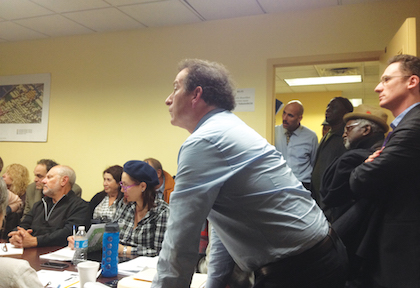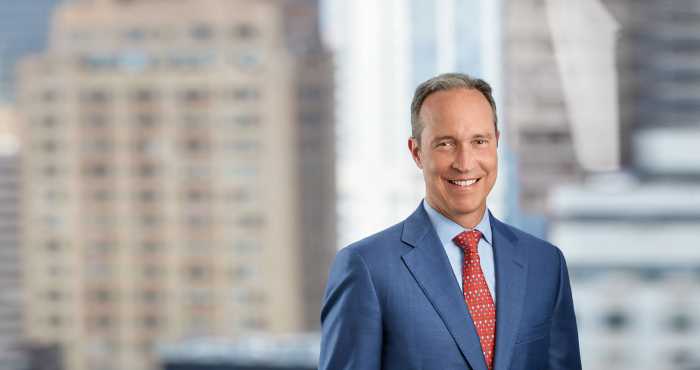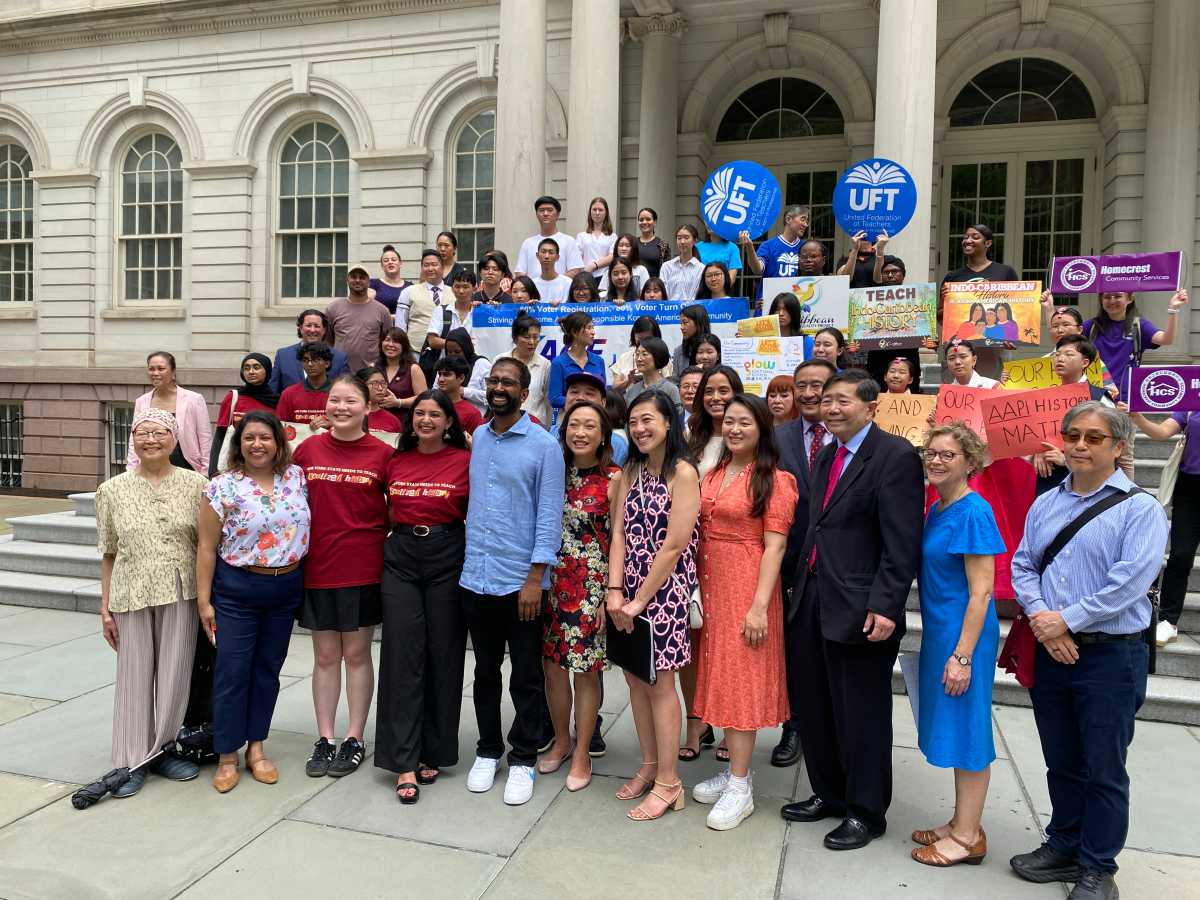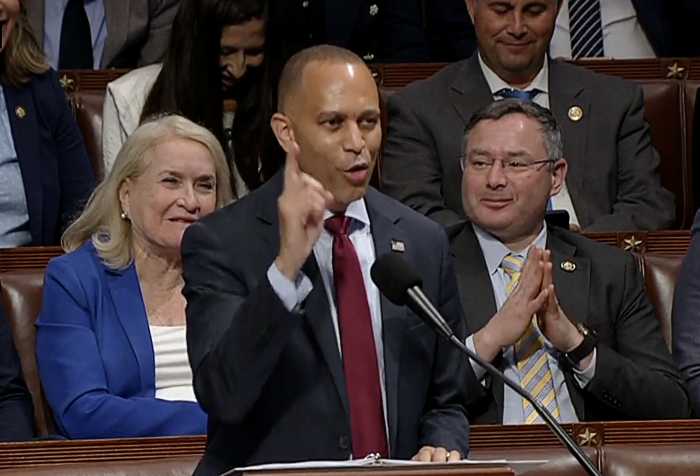
BY SEAN EGAN | It was a tale of two sides, told twice — as separate gatherings of Community Board 4 (CB4) heard testimony from vendors and the owner of the Hell’s Kitchen Flea Market (HKFM), which is seeking a permit renewal. Permit renewal for the open-air event, held weekends at West 39th Street and Ninth Avenue, has been the subject of considerable controversy recently given a troubled relationship between the owner, Alan Boss, and at least some of his vendors.
During a December 2 CB4 full board meeting, several vendors spoke up about their feelings of being abused at the hands of Boss and his wife, Helene. Five days later, on December 7, CB4’s Quality of Life (QOL) Committee took up the question of the market’s 2016 application for its permit renewal from the city’s Street Activity Permit Office (SAPO), which sparked heated exchanges but also gave Boss and his representatives an opportunity to air their side of the story.
At the December 2 full board meeting, Anthony DeVincenzo, a 10-year vendor, spoke of a movement to change up the management of the HKFM.
“There is animosity among parties,” he said, “and vendors would like to see the market get its old vitality back.”
Mik Farkas, another vendor, said many of his fellow vendors are “fearful to speak up and lose what they have,” and claimed the market is no longer vital and that “it’s being milked for [the Bosses’] personal purposes. The character of the folks running the market is horrendous. I can’t believe some of the things I’ve heard with my own ears.”
Another vendor, David Bros, said he left the market after what he described as degrading treatment from the Bosses. April Summers, another former vendor, accused Helene Boss of harassing her and her 12-year-old daughter after she was late with rent, including cursing at the child.
The QOL Committee meeting, held at CB4’s relatively small West 42nd Street office space the following week, drew an overflow crowd that spilled out well into the vestibule. Representatives from SAPO — which is responsible for permitting on-street events such as farmers markets, block parties, and street festivals — were on hand to explain their office’s procedures, in particular the requirement that events of a certain magnitude, such as the HKFM, have a sponsoring non-profit that benefits from a portion of profits. They also made clear that SAPO typically honors community board rejections of permit applications or imposes any stipulations the board adds to its approval.
HKFM representative Scott Isebrand was on hand to plead the market’s case for permit renewal, highlighting Alan Boss’ longtime association with flea markets, including his famous Sixth Avenue one in Chelsea, which, after being established in 1976, became a magnet for community residents, tourists, and even luminaries like Andy Warhol.
The HKFM location on West 39th Street was opened in 2003 and, according to Isebrand, achieved profitability in 2011. At the same time, responding to critics who point to a dwindling customer base and fewer vendors, he cited factors such as changing tastes, the rise of online shopping, and weather.
Isebrand explained that, in compliance with SAPO regulations, Boss, in 2012, the year after turning a profit, created the Hell’s Kitchen Foundation as the sponsoring nonprofit. A spokesperson for Boss said the foundation was “created to foster the arts by providing financial support to local artists as they pursue their passion,” and that it plans to begin giving out grants next year. The IRS did not give final approval to the nonprofit until February of this year.
QOL Committee members made clear they were dissatisfied with both the past financial documentation from the market and the foundation and the lack of specificity in Boss’ plans going forward. David Pincus, the committee’s co-chair, criticized the plan presented as being “highly amorphous.” Both he and co-chair Tina DiFeliciantonio were wary of Boss’ assertion he is “certainly receptive to the stips” required by CB4 because of his aim to “build the market up to what it was.” The co-chairs charged that the HKFM is not abiding by all the stipulations currently in effect — including requirements for security and for a full time manager (the current one splits his time between Boss’ two flea market locations).
And, given that the market achieved profitability in 2011 and established a non-profit foundation the following year, committee members demanded to know why the foundation had not yet made any donations. Boss said that he had waited on full IRS approval before doing so — but that during the three-year interim period, he and the market simply made charitable donations independently, supporting nonprofits by, for example, giving them free space at the market.
The committee said it would need to see the books of the market and the foundation to verify those claims, which Boss agreed to provide.
Boss also agreed to the committee’s stipulation that the market retroactively direct 25 percent of profits from the interim years since it became profitable to the foundation.
When committee members asked about abuse alleged by vendors at the full board meeting the week before, Boss asserted that only a minority of vendors felt wronged and said, “You can’t make all of the people happy all of the time.”
“Do you recognize,” Pincus pushed back, “there is a problem that needs work?”
“I recognize there is a problem from some people,” Boss replied, saying he’d do his best to improve relations “short of hiring Sigmund Freud.”
When the floor was opened up, David Bros and Mik Farkas, clad in yellow shirts from the Street Vendor Project (SVP) of the Urban Justice Center, once again spoke out against the Bosses, as did Urban Justice attorney Sean Basinski, who had also appeared before the full CB4 board on December 2. Basinski suggested it might be time that the market permit be awarded to new management.
Boss was not without friends in the room, however, with more than a dozen longtime flea market vendors — a good number of whom had worked with him for decades and followed him from one market to the next — turning out to show their support. The market wasn’t perfect, they said, but it was a vital part of the community and Boss had proved himself a fair and friendly owner over the years.
“It’s my little business,” Geisha Otera, a vendor for nine years, said of her space at the market. “It’s really my means of income, and I don’t want that taken away from me.”
Dawn, a vendor for six years, had no qualms with management, saying they’ve been “out of their way nice and professional” and calling the market a “cultural stronghold.”
One vendor, Peter Farkas (no relation to Mik), went so far as to raise questions about Bros, claiming he frequently got into arguments with neighboring vendors at the market.
Helene Boss spoke up in defense of herself, acknowledging that she is a tough manager, but arguing, “I run a clean operation” and insisting she has a vested interest in “protecting my vendors.”
By the end of the meeting, QOL Committee members made clear they see the market as a community amenity they don’t not want to risk losing, and passed a motion to draft a letter to SAPO — with new and updated stipulations — approving Boss and the HKFM to SAPO.
The letter, members agreed, would take the form of a “Deny Unless,” making enforcement of the stipulations more stringent, with monthly oversight, and reserving the right to withdraw approval.
The stipulations agreed to included finding a full-time manager devoted solely to the West 39th Street market location, and increasing security once the market exceeds 50 vendors. Boss was given until December 9 to provide the required financial documentation regarding both the market and the non-profit foundation. On December 15, a CB4 spokesperson confirmed that Boss had complied with all the committee’s requirements and that a letter spelling out its approval as well as its stipulations would be delivered to SAPO the following day.
The full CB4 board is expected to ratify the committee’s letter in early January.
Additional reporting for this article was provided by Winnie McCroy.

































